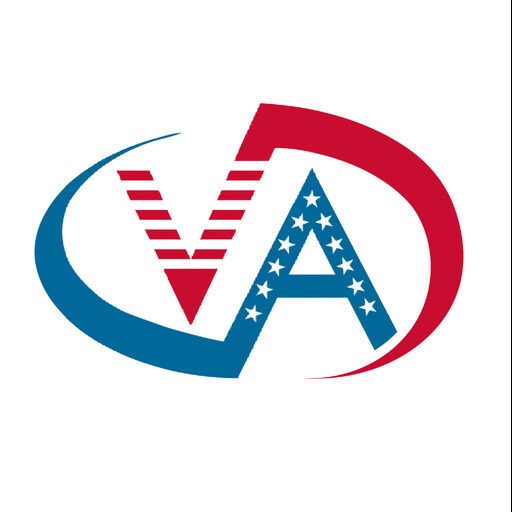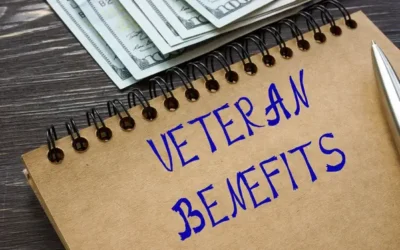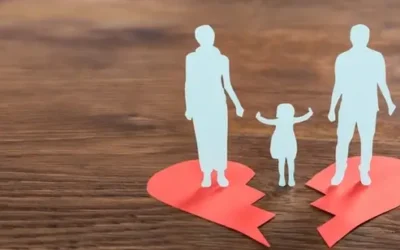Legal separation usually doesn’t immediately change most VA benefits because marital status remains “spouse” until a court enters a final divorce decree. What can change depends on the specific program and whether it’s a VA benefit (like compensation, pension, DEA) or a DoD benefit (like TRICARE or military ID). This overview shows what stays the same, what changes at divorce, and what to file.
Quick Facts
- Legal separation does not dissolve the marriage; VA still recognizes the spouse absent a final divorce.
- VA pension (and Aid & Attendance) generally counts both spouses’ assets unless estranged and living apart.
- VA disability compensation isn’t marital property but can be garnished for support in limited scenarios.
- DoD benefits (TRICARE, military ID) follow separate rules and change at divorce, not separation.
- You can and should update VA on dependents and income using VA forms and online tools.
Mini FAQ
Does legal separation change VA benefits right away?
Generally, no. Legal separation doesn’t end the marriage, so the spouse remains a spouse for most VA programs. Some means‑tested programs still look at household finances and may treat estranged spouses differently when truly living apart.
Will my spouse lose health coverage during separation?
For VA’s CHAMPVA, the spouse remains eligible if the underlying criteria still apply. For DoD TRICARE, spouses usually keep coverage until divorce. After a divorce, eligibility depends on specific former‑spouse rules.
Can VA disability be divided in divorce?
No, disability compensation isn’t divisible as property. However, a court can order support, and VA benefits may be garnished for child support or alimony in certain circumstances, especially when paid in lieu of retired pay.
Key Takeaways
- Separation doesn’t end marriage; most VA benefits treat spouses unchanged.
- DoD benefits like TRICARE shift at divorce, not during separation.
- Pension and Aid & Attendance often count a spouse’s assets and income.
- Disability compensation isn’t marital property, but support orders matter.
- File VA forms to update dependents, finances, and health eligibility.
- Document estrangement and independence for means‑tested determinations.
Understanding Legal Separation and VA Benefits
Legal separation is a formal agreement between spouses to live apart while remaining legally married. While it’s not the same as divorce, it does create some potential complications regarding VA benefits, particularly when it comes to dependents.
Key Points to Keep in Mind:
- For Veterans, the status of their benefits usually doesn’t change due to legal separation. You are still eligible for the benefits you’ve earned.
- However, benefits that extend to dependents, like spouses or children, may be affected depending on the terms of your separation agreement and VA rules.
“Legal separation can be confusing, but it’s important to know that the VA focuses on your status as a Veteran, not the status of your relationship,” explains Sarah Walker, a Veterans’ benefits specialist.
Types of VA Benefits and How Legal Separation Impacts Them
1. VA Disability Compensation
VA disability compensation is a tax-free benefit provided to Veterans with service-connected disabilities. Your marital status or legal separation generally does not impact your eligibility for these payments. However, if you are receiving additional compensation for dependents, a separation could change that.
What to Know:
- If your spouse is no longer considered a dependent under VA rules, you may lose the additional dependent compensation.
- It’s essential to notify the VA of any changes in your marital status, including legal separation, to avoid overpayments or discrepancies.
2. VA Health Care
Veterans themselves will not lose VA health care benefits due to legal separation. However, health care benefits for a spouse or children, such as CHAMPVA, may be affected.
Key Considerations:
- Spouses typically lose access to CHAMPVA if they are no longer considered dependents.
- Dependent children may remain eligible if they meet age and other criteria.
3. VA Education Benefits
Education benefits like the Post-9/11 GI Bill and the Transfer of Entitlement (TOE) program are sometimes transferable to a spouse or dependent children. Legal separation may impact a spouse’s eligibility to use these benefits, but children’s eligibility usually remains unchanged.
Important Details:
- If you transferred benefits to your spouse, their access may depend on whether they are still legally considered your dependent.
- You can reallocate unused benefits to your children if your spouse is no longer eligible.
4. VA Home Loan Benefits
VA home loan benefits are tied to the Veteran. Legal separation does not typically affect your ability to use these benefits. However, if your spouse was co-borrowing on a VA loan, their eligibility to remain on the loan or use VA home loan benefits independently may change.
Scenarios to Consider:
- If you already have a VA-backed loan with your spouse, legal separation may require financial agreements about the home.
- Spouses generally cannot use VA home loan benefits on their own unless they are eligible Veterans themselves.
VA Benefits Impact Summary for Legally Separated Veterans
| Benefit | Impact of Legal Separation | Action Required |
|---|---|---|
| Disability Compensation | Veteran keeps benefits; dependent pay may be reduced. | Notify VA of marital status changes. |
| VA Health Care | Veteran keeps benefits; spouse may lose CHAMPVA. | Update dependent information with VA. |
| Education Benefits | Spouse eligibility may be affected; children unaffected. | Reallocate benefits if necessary. |
| Home Loan Benefits | Veteran keeps benefits; spouse eligibility may change. | Review co-borrowing arrangements. |
Steps to Ensure Compliance and Retain Eligibility
If you’re legally separated, it’s crucial to take the right steps to ensure you stay compliant with VA rules and retain your benefits:
- Update Your Marital Status with the VA: Notify the VA of your separation so they can adjust dependent-related benefits as needed.
- Review Your Separation Agreement: Check for clauses about financial support or benefits and ensure compliance with VA policies.
- Reallocate Benefits Where Possible: If your spouse loses eligibility for education benefits, ensure unused benefits are reallocated to eligible dependents.
- Seek Guidance: Work with a VA benefits counselor to navigate any complexities.
“Even small changes in your marital status can have big implications for your benefits,” notes Mark Davis, a former VA representative. “Staying proactive is key to avoiding surprises.”
Legal Separation vs. Divorce: What’s the Difference for VA Benefits?
It’s important to understand that legal separation and divorce are treated differently by the VA. In a legal separation, you are still technically married, which can preserve eligibility for some spousal benefits, depending on the circumstances. In contrast, a divorce generally terminates a spouse’s eligibility for most VA benefits.
Comparison of Legal Separation and Divorce in Terms of VA Benefits
| Benefit | Legal Separation | Divorce |
|---|---|---|
| Disability Compensation | Additional dependent pay may be removed. | Additional dependent pay is removed. |
| Health Care | Spouse may lose CHAMPVA. | Spouse loses CHAMPVA. |
| Education Benefits | Spouse may remain eligible. | Spouse loses eligibility. |
| Home Loan Benefits | Spouse eligibility depends on agreement. | Spouse loses eligibility unless a co-borrower. |
What Happens to Spousal Benefits After Legal Separation?
CHAMPVA Health Coverage
Spouses who are legally separated may lose access to CHAMPVA health coverage unless the separation agreement specifies that they remain dependents. Children’s coverage is usually unaffected.
Dependency and Indemnity Compensation (DIC)
If you’re receiving DIC payments due to the death of a service-connected spouse, legal separation does not generally affect your eligibility, as long as you remain legally married.
Spousal Pension Benefits
Spouses of Veterans who are legally separated may still qualify for pension benefits if they meet the VA’s dependency criteria.
3 Practical Tips for Veterans Navigating Legal Separation
1. Communicate Clearly with the VA
When your marital status changes due to legal separation, the VA needs to be informed promptly to avoid issues such as overpayments or inaccurate benefit allocations.
The VA calculates certain benefits, like additional disability compensation for dependents, based on the information they have about your family status. Failing to update this information could lead to financial headaches later.
Steps to Ensure Clear Communication:
- Notify the VA immediately about your legal separation using VA Form 21-0538, the Status of Dependents Questionnaire, or other appropriate forms.
- Provide documentation such as a copy of the legal separation agreement, if required, to clarify the arrangement and its implications for dependents.
- Follow up to confirm that your VA records are updated, especially if you’re receiving additional benefits for a spouse or children.
- Stay proactive in checking for updates or correspondence from the VA to resolve any discrepancies quickly.
“Timely communication ensures you avoid issues like owing back payments, which can happen if dependent benefits are incorrectly paid after separation,” says Lisa Crawford, a VA claims consultant.
2. Consult a Lawyer or VA Expert
Legal separation agreements can have long-term implications for VA benefits, especially if they include clauses about spousal support or custody arrangements for children. A lawyer familiar with military benefits or a VA-accredited representative can help you craft an agreement that aligns with VA rules while protecting your rights and those of your dependents.
Why Consulting an Expert is Important:
- VA benefits have specific rules about who qualifies as a dependent. Misunderstanding these rules could unintentionally disqualify your spouse or children from certain benefits.
- A knowledgeable expert can help you understand how the separation agreement might affect benefits like CHAMPVA, educational entitlements, or housing assistance.
- They can also assist in navigating complex scenarios, such as ensuring that children continue receiving benefits while minimizing the financial impact on both parties.
For example, if your separation agreement provides for your spouse to continue receiving certain VA-related payments, an expert can help you confirm whether this is permissible under VA guidelines.
3. Plan for the Long Term
If reconciliation is not an option, it’s essential to start planning for the long-term effects of legal separation or potential divorce. While legal separation allows some benefits to remain intact for your spouse, a divorce typically eliminates spousal eligibility for VA benefits. Taking a forward-looking approach can help you minimize disruption for your family and ensure a smooth transition if divorce becomes inevitable.
How to Prepare for Long-Term Changes:
- Review how each VA benefit might change if you proceed to divorce. For example, spousal access to CHAMPVA or education benefits would cease, but children’s benefits may remain unaffected.
- Create a financial plan to address how losing spousal VA benefits might impact your overall household budget.
- Consider reallocating transferable benefits, like the Post-9/11 GI Bill, to eligible children or other dependents before a divorce finalizes.
- Plan for the possibility of refinancing or selling a VA-backed home loan if both parties are co-borrowers and decide to separate ownership of the property.
“Thinking ahead can save you from rushed decisions if the separation leads to divorce,” says Veteran financial advisor James Porter. “Make sure you’re clear on how the changes will affect your benefits and your family’s future.”
The Bottom Line
Can I still receive VA disability compensation if I’m legally separated?
Yes, your disability compensation is not affected by legal separation. However, if you receive additional compensation for a spouse, that portion may change.
Does my spouse lose access to CHAMPVA health coverage after separation?
Spouses often lose CHAMPVA eligibility after legal separation unless they remain dependents under the VA’s rules. Dependent children are usually unaffected.
What happens to my VA home loan benefits if I’m legally separated?
Your home loan benefits remain intact, but if your spouse is a co-borrower, legal separation may require you to adjust the loan terms.
Can my legally separated spouse still use my transferred Post-9/11 GI Bill benefits?
It depends on whether your spouse is still considered a dependent. You can reallocate unused benefits to eligible children if needed.
Will my legal separation affect my children’s education benefits?
No, children’s eligibility for VA education benefits typically remains unchanged as long as they meet the age and other requirements.
Can my separated spouse receive Dependency and Indemnity Compensation (DIC)?
Yes, if your spouse qualifies for DIC due to a service-connected death, legal separation does not necessarily affect their eligibility.
What’s the main difference between legal separation and divorce for VA benefits?
Legal separation allows some benefits to remain available to a spouse, while divorce typically ends spousal eligibility for most benefits.
Do I need to update the VA about my legal separation?
Yes, you should notify the VA to ensure your benefits are updated and avoid payment errors.

The VA Loan Network Editorial Team is comprised of dedicated mortgage specialists and financial writers committed to providing veterans and service members with accurate, up-to-date information on VA loan benefits, eligibility, and the home-buying process.








